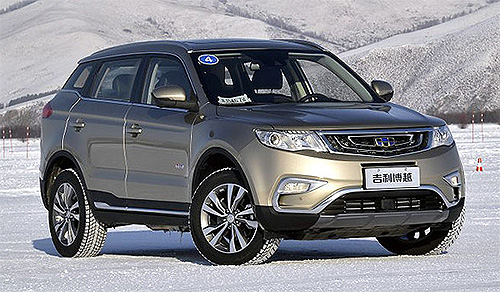A QUESTION OF BUSINESS | With China’s Geely now firmly in the Proton driver’s seat, can the Malaysian public expect car prices to fall as the country rolls back punitive duties it introduced to protect the first national car project? And who is the deal good for ultimately?
If the answer to the first question is yes, and the answer to the second is the car-buying public, then the deal is good. If not, expect the Malaysian public to continue to be fleeced by paying astronomical prices for cars.
But this time a chunk of the profits will go to the new Proton - now almost 50% owned by a China company, totally in private hands and no longer with a government golden share or any government interests at all.
The first thing to remember is that Malaysia’s car market is distorted towards much higher prices because of hefty import duties levied from the time Proton started making rebadged Mitsubishis in 1985 in joint venture with the Japanese company of the same name.
As the government has embarked on a major plan of rolling back subsidies in the economic system, it is only fair that high taxes on cars are removed as well - you can’t say remove subsidies and at the same time maintain high taxes.
The government, through Khazanah Nasional sold its 42.7% stake in Proton for RM1.29 billion (valuing the whole company at RM3 billion) in 2012 to DRB-HICOM, a listed company majority owned by Syed Mokhtar Albukhary. DRB-HICOM subsequently made a general offer and took Proton private.
That should have meant that the government wash its hands clean of Proton and let it operate without any aid. But it did not. Despite Syed Mokhtar being in control, the government gave financial aid of RM1.5 billion in the form of a soft loan and research grants totalling at least RM1.1 billion.
Given this history, and the fact that Syed Mokhtar still controls Proton, the research grants are likely to continue and since Proton still needs help, duties are not likely to be cut soon. Car prices will remain where they are and private Proton’s profits will still be protected.
What we are seeing is not the restructuring of the car industry through a major transformation of Proton but merely giving Proton access to technology and maintaining the duty structure to ensure Proton is profitable. That benefits Proton, and its ultimate shareholders Geely and Syed Mokhtar, not the public. The same inefficient structure for the car industry continues.
Let’s now look at the broad terms of the deal and then scrutinise the details because that’s where the story (and the devil) usually is. China’s Zhejiang Geely Holding Group Co Ltd is taking a 49.9% stake in Proton Holdings via the issue of new shares. The remaining 50.1% will be held by DRB-HICOM, the listed company controlled by Syed Mokhtar.
 The price for this was not disclosed in the announcement on May 24 but was to be satisfied in cash, and with the grant of a licence to manufacture and sell Geely’s Boyue model (NL3) under the "Proton" brand in the right-hand drive markets in “certain Southeast Asian countries for the life cycle of the model”. That’s basically re-badging - nothing more. DRB-HICOM is currently in the process of estimating the true value of this in-kind injection of the "Boyue" model, DRB-HICOM said.
The price for this was not disclosed in the announcement on May 24 but was to be satisfied in cash, and with the grant of a licence to manufacture and sell Geely’s Boyue model (NL3) under the "Proton" brand in the right-hand drive markets in “certain Southeast Asian countries for the life cycle of the model”. That’s basically re-badging - nothing more. DRB-HICOM is currently in the process of estimating the true value of this in-kind injection of the "Boyue" model, DRB-HICOM said.
A day later, DRB-HICOM disclosed to analysts that the 49.9% stake in Proton is valued at RM770 million (minus the value of lands and other assets - which will be the subject of a future column). Geely will inject RM170 million in cash and give Proton the rights to the Boyue model, valued at RM600 million.
In effect, cash of RM170 million gives Geely a 49.9% stake in Proton, the rest merely being rights for one model, which is a pretty good deal for Geely, but not for Proton. It’s a deal Proton could have cut with any major manufacturer, without having to give up the equity stake and it could have structured payment according to car sales...

